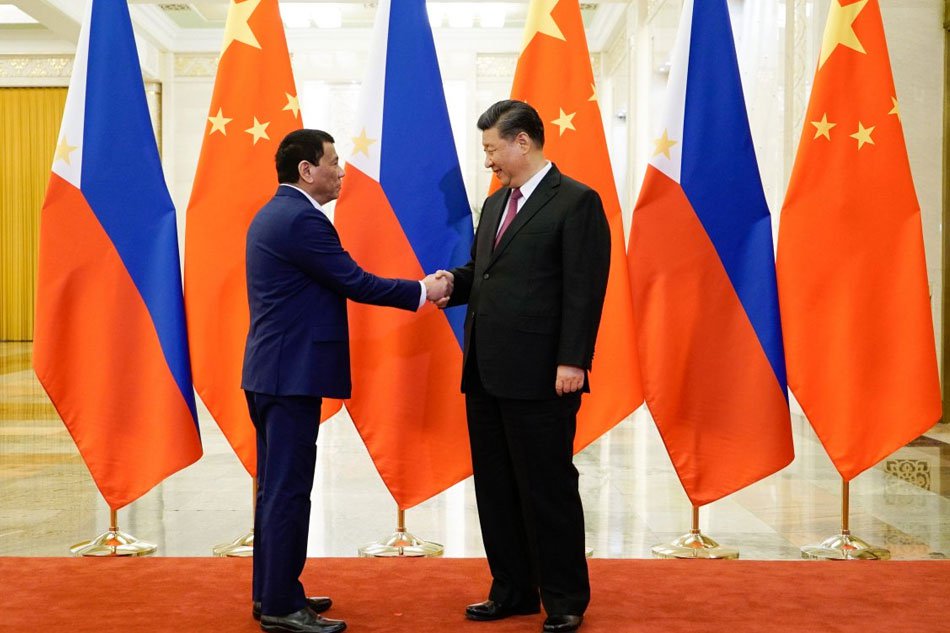
China still refuses to recognise the ruling of the United Nations-backed court that dismissed its sweeping claims to the South China Sea.
Philippine Ambassador Jose Santiago Santa Romana confirmed this after the territorial dispute was raised during a meeting between President Duterte and China’s Xi Jinping yesterday (Thursday, April 25).
The two leaders met during the second Belt and Road Forum for International Cooperation in Beijing.
“The president raised this and the Chinese maintained their position so there are differences,” he said at a business forum in the Chinese capital when asked about the 2016 Hague ruling.
“It is a card for us in terms of it clarifies our maritime entitlements. Unfortunately the Chinese are not willing to recognise this so it is a challenge, it will take more time,” he added.
However, he remained optimistic that tension would ease in the disputed region after the two leaders agreed to continue bilateral negotiations to settle the territorial conflict.
He also said that President Duterte raised the country’s concerns, including the recent alleged “swarming” of Pag-asa Island during the meeting with Xi.
In turn, China reportedly indicated that it was prepared to address concerns raised by the Philippines.
Investments made, but no concessions
Meanwhile, at least 19 trade and investment deals worth $12.165 billion were secured during President Duterte’s fourth visit to China.
The business deals cover energy, infrastructure, telecommunications, food, sale of agricultural products, tourism and economic zone and industrial park development. They are expected to generate 21,165 jobs for the country, according to Trade and Industry Secretary Ramon Lopez.
“The Duterte administration is pushing for investments on energy and manufacturing for the Philippines to broaden its manufacturing base and increase its exports. Among the agreements are energy projects that will help the country decrease its dependence on oil and gas imports,” he said.
“There will also be several industrial parks to bring jobs to Filipinos in the countryside.
“The country is growing over six per cent sustained for the past 15 quarters consecutively. It’s really a good indication of a fast growing economy.
“They [Chinese investors] know the demographic sweet spot that we have right now, over 107 million Filipinos. It keeps on growing. There’s a growing middle class.”
Follow our Facebook page for daily news updates
…

Comments are closed.